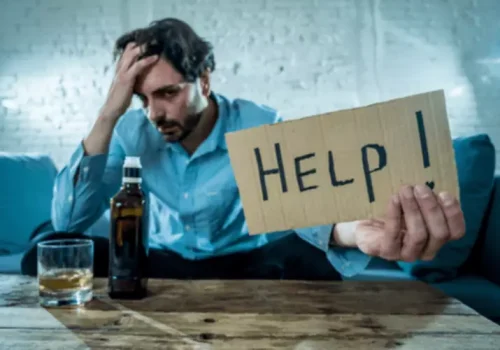
Individuals develop new thoughts, feelings and behaviors while using substances. These may include shutting family off, denying issues or justifying substance use. Healthier practices need to replace these negative internal processes in order to help people succeed in their path to a substance-free life. Friends and family may not understand the consequences of negative behaviors toward people in recovery. These behaviors can make the individuals feel alienated and push them toward substance use.
Will Insurance Cover Rehab for Addiction and Alcoholism
The negative side effects of relapsing after enrolling in drug and alcohol recovery programs is another concern. In recent experiences, drug and alcohol abuse after practicing abstinence, heightens an individuals chances of overdosing. External relapse triggers come from the “outside,” meaning people, places and situations. When you https://ecosoberhouse.com/ encounter these factors, they can cause you to crave drugs or alcohol. The best way to avoid these triggers is by creating a structured routine that keeps you busy without feeling stressed.

People Trigger Relapse
For someone who has suffered from physical or emotional abuse as a child, opioids may become their drug of choice, because opioids help to suppress emotional pain. If you or a loved one has experienced a relapse, or are just considering treatment options, we are here to help you. This includes substance use disorders, eating disorders, and anxiety. The Massachusetts Center for Addiction offers comprehensive addiction and mental health treatment programs that blend evidence-based therapies with personalized care. Our drug and alcohol rehab programs and mental health rehab services are tailored to each individual’s specific needs.
Internal Drug And Alcohol Relapse Triggers
- At Rockland Treatment Center, we equip our clients with the tools to manage both internal and external addiction triggers.
- By doing so, you empower yourself, turning awareness into strength.
- At Canyon Vista Recovery Center, located in Mesa, Arizona, you will learn the skills needed to gain sobriety.
- Stephanie Robilio is an accomplished Clinical Director at Agape Behavioral Healthcare.
For more information or to start a treatment program, reach out to our team of addiction professionals. Understanding and managing external triggers is a crucial part of the recovery journey. It requires vigilance, resilience, and a commitment to ongoing self-improvement. But with the right support and resources, individuals can effectively navigate these challenges and continue on their path to recovery. Learning to cope with external triggers involves developing strategies to avoid or deal with these triggering situations. alcoholism treatment This might involve steering clear of specific locations or individuals that could trigger a relapse.
TREATMENT
For some, a trigger might cause a physical response – heavy breathing, sweating, crying. For some, a trigger can elicit an emotional reaction, like thinking “I am being attacked.” For some, a trigger can cause harm or a relapse. If this is a medical emergency or there is immediate danger of harm, call 911 or visit a hospital emergency department and explain that you need support for a mental health crisis. There are many possible coping strategies you can try, but all should focus on reducing the impact of the trigger and the strength of emotional reactions. For some, a trigger might cause a physical response – heavy breathing, sweating, crying. Once you identify the internal stimuli, you can start working on them.
This might involve cognitive-behavioral techniques, mindfulness practices, or other therapeutic methods. The goal is to recondition your brain to respond internal and external triggers differently, helping you to live more fully in the present. Some people were driven to drug use by emotional pain in their lives. Others turned to substance use because of boredom or to enhance pleasurable experiences.
- Every individual in recovery from a drug or alcohol addiction needs to work each day to keep their sobriety.
- Her purpose is to help individuals understand their past so they can create a future full of hope, growth, and success.
- While some people manage difficult situations with ease, people in recovery can easily slip back into old habits when dealing with new situations.
- Agape Treatment Center for substance abuse embraces a universal, unconditional love that transcends, that serves regardless of circumstances.
By eliminating these people from the post-addiction life of recovery, many people are able to minimize the chance of relapsing due to associating with those who still use. Internal triggers, deeply intertwined with emotions and thoughts, play a crucial role in the process of recovery and the risk of relapse. These triggers often originate from within the individual and are closely related to their emotional state. Understanding and managing these triggers can significantly improve an individual’s recovery journey. After experiencing a trigger, a person may have big, negative feelings – overwhelm, powerlessness, fear, etc. These feelings can be detrimental to mental health and are often a challenge to effectively address after they arise.

Understanding External vs. Internalized Triggers: A Guide for Self-Healers
Whether you’re struggling with internal emotions or external influences, Rockland Treatment Center is here to support you every step of the way. Our team of experienced professionals is dedicated to providing personalized care to help you stay on the path to recovery. In the context of mental health conditions, internal triggers are the cognitive and emotional cues that lead to a relapse of symptoms. For example, negative thoughts and feelings might trigger a relapse of drug or alcohol use. Effective management of internal triggers often involves learning new emotional regulations and coping strategies. These may include mindfulness practices, cognitive-behavioral techniques, and self-care routines.

Internal and External Triggers: 13 Examples of Each
- Many people find that visiting certain places causes intense triggering in them.
- The solution to overcoming this relapse trigger is to learn how to channel your positive feelings in a positive way, without the use of substance abuse.
- Gatehouse Treatment would like to help you overcome your relapse triggers.
- These are often easy to identify because they are linked to specific events, people, or situations.
Triggers vary widely from person to person and can be internal or external. Following are examples of events that might be considered triggers. However, Mezulis notes that even people without a history of trauma can be triggered when something elicits a strong emotional reaction. Agape Treatment Center for substance abuse embraces a universal, unconditional love that transcends, that serves regardless of circumstances. We provide individuals all over the country with the opportunity to achieve the gift of lasting sobriety. Trial and error can help each person determine what works best for them.
Getting Help for Addiction in Agoura Hills, CA
If a person can’t control the trigger fully, they may be able to limit the emotional reaction to it before it becomes problematic and harder to address. They might even be able to prevent the trigger by preparing for it. Anything that offers a little control over mental illness can help keep us well. These internalized events are often harder to identify because they stem from within and are not directly linked to the current environment.